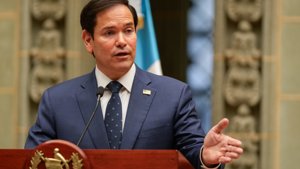
Texas Doctor Gets 10 Years for $325M Fraud
Dr. Jorge Zamora-Quezada sentenced to 10 years for falsely diagnosing thousands, defrauding Medicare of millions.
Decades-Long Scheme Harmed Thousands
A Texas rheumatologist was sentenced Wednesday to 10 years in federal prison for orchestrating a sprawling healthcare fraud scheme that falsely diagnosed thousands of patients and reaped over $325 million in fraudulent gains. Dr. Jorge Zamora-Quezada, who practiced in Texas, Arizona, and Massachusetts, was found guilty of seven counts of healthcare fraud, conspiracy, and obstruction of justice in 2020.
Prosecutors described his actions as among the most egregious cases of patient harm and medical fraud ever prosecuted by the Department of Justice. Over nearly two decades, Zamora-Quezada diagnosed unsuspecting patients—many of them teenagers, the elderly, disabled individuals, and non-English speakers—with rheumatoid arthritis and subjected them to unnecessary and harmful treatments, including chemotherapy and intravenous infusions.
Lavish Lifestyle at Patients’ Expense
While patients suffered debilitating side effects, including strokes, liver damage, and necrosis of the jawbone, Zamora-Quezada funded an opulent lifestyle. He owned 13 properties across the U.S. and Mexico, including in Aspen and Puerto Vallarta, commuted via private jet and Maserati—both marked with his initials “ZQ”—and spent millions on luxury real estate and travel.
“By the time you’re toward the end of the scheme, he knows the consequences some of these things have had on the victims, and he’s going forward anyways,” said Matthew Galeotti, head of the DOJ Criminal Division. He called the case a stark representation of the Trump administration’s aim to hold medical fraudsters accountable and protect both patients and taxpayer dollars.
Data presented in court revealed Zamora-Quezada diagnosed 72.9% of his Medicare patients with rheumatoid arthritis, compared to just 13% diagnosed by a pool of seven other Texas rheumatologists. Prosecutors argued that this pattern reflected systematic fraud, rather than isolated incidents of misdiagnosis.
The Justice Department sought $100 million in restitution. While the judge ultimately ordered Zamora-Quezada to pay $28 million, the court also forfeited many of his assets.
“There was testimony about truly debilitating side effects from the medications,” a DOJ official said, highlighting the extent of harm to victims. “Hair loss, bone loss, even the jawbone melting away.”
The doctor’s strategy, officials added, deliberately targeted vulnerable, low-income populations in areas with limited healthcare access and language barriers—amplifying the damage and betrayal of trust.
Galeotti summarized the impact: “Of course, it’s always the most twisted when you’re benefiting from someone else’s misfortune—misfortune you caused—and misfortune you used for your own personal enrichment.”
Defense attorneys argued the fraud was not as widespread as prosecutors claimed, but the jury rejected that view. The court’s decision closes a chapter on a case that DOJ officials say will have lasting implications for medical oversight and patient advocacy.






